Let’s talk about the scary “F” word… fragrance. Over 75% of Americans use toxic fragranced air fresheners regularly. [1] From candles to plug-ins, wax warmers, sprays, beauty products & more, fragrance is found everywhere. But are they doing more harm than good? What is natural fragrance? Is there such a thing as a “safe fragrance”? These chemicals are silently sabotaging your health.
So, what’s in fragrance? How does it impact your health? Are all fragrances bad? What are safer alternatives? Remember, what goes in, on & around your body matters.
Keep reading to learn more about safe fragrances & how to avoid these toxins in your daily products.
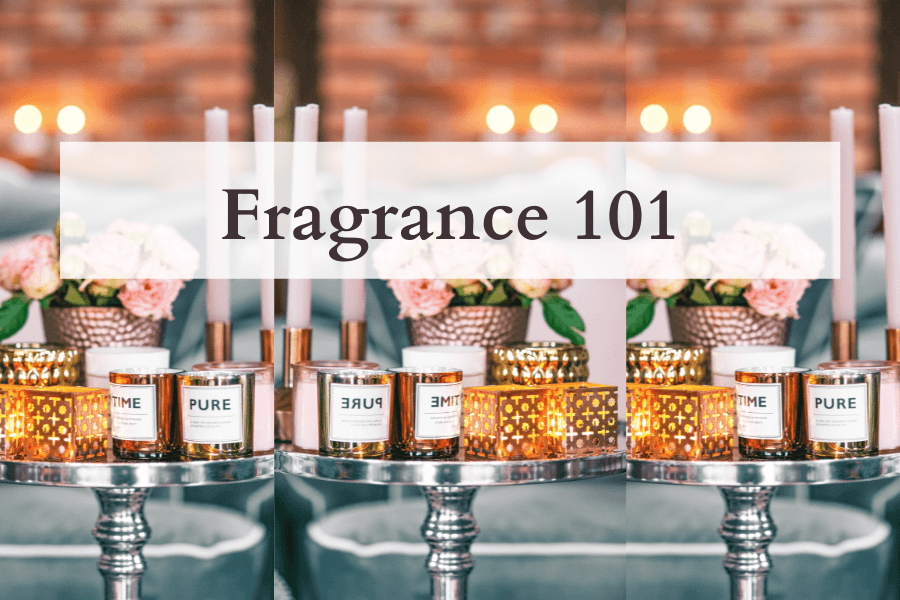
Note: This article contains affiliate links, meaning In On Around will make a small commission at no additional cost to you. This helps me maintain the site. As always, I value full transparency & only work with brands I love and trust.
The Truth About Fragrance – Aren’t They Regulated?
According to the US Food & Drug Administration (FDA), fragrance is a combination of chemicals that gives a product, like a perfume, its scent. Usually, it’s a combination of chemical components, solvents, UV-absorbers, dyes, stabilizers & more… most of which are derived from petroleum. In fact, 95% are derived from petrochemicals (yuck… and not environmentally-friendly, either)! Unfortunately, despite their nice smell, fragrances can be highly toxic, even ones marketed as “natural.”
Under the 1973 Federal Fair Packaging and Labeling Act, manufacturers are not required to disclose what chemicals they use under the term “fragrance” or “perfume.” They’re deemed “trade secrets” by the US Food & Drug Administration. Fragranced ingredients do not require FDA approval before they are sold on the market.
Did you know that most products containing fragrance don’t disclose all of the fragrance ingredients?!
The full fragrance ingredients are not usually listed on the product label. Manufacturers don’t need to list all of their ingredients… so, in reality, you don’t truly know what you’re putting on your body. This manufacturing loophole leads to a lack of transparency (and some scary industry practices)!
Unbelievable… right!?
The International Fragrance Association (IFRA) has a list of all registered fragrance ingredients used in consumer goods worldwide…
Over 4,000 materials can be used under the term “fragrance.”
The International Fragrance Association (IFRA)
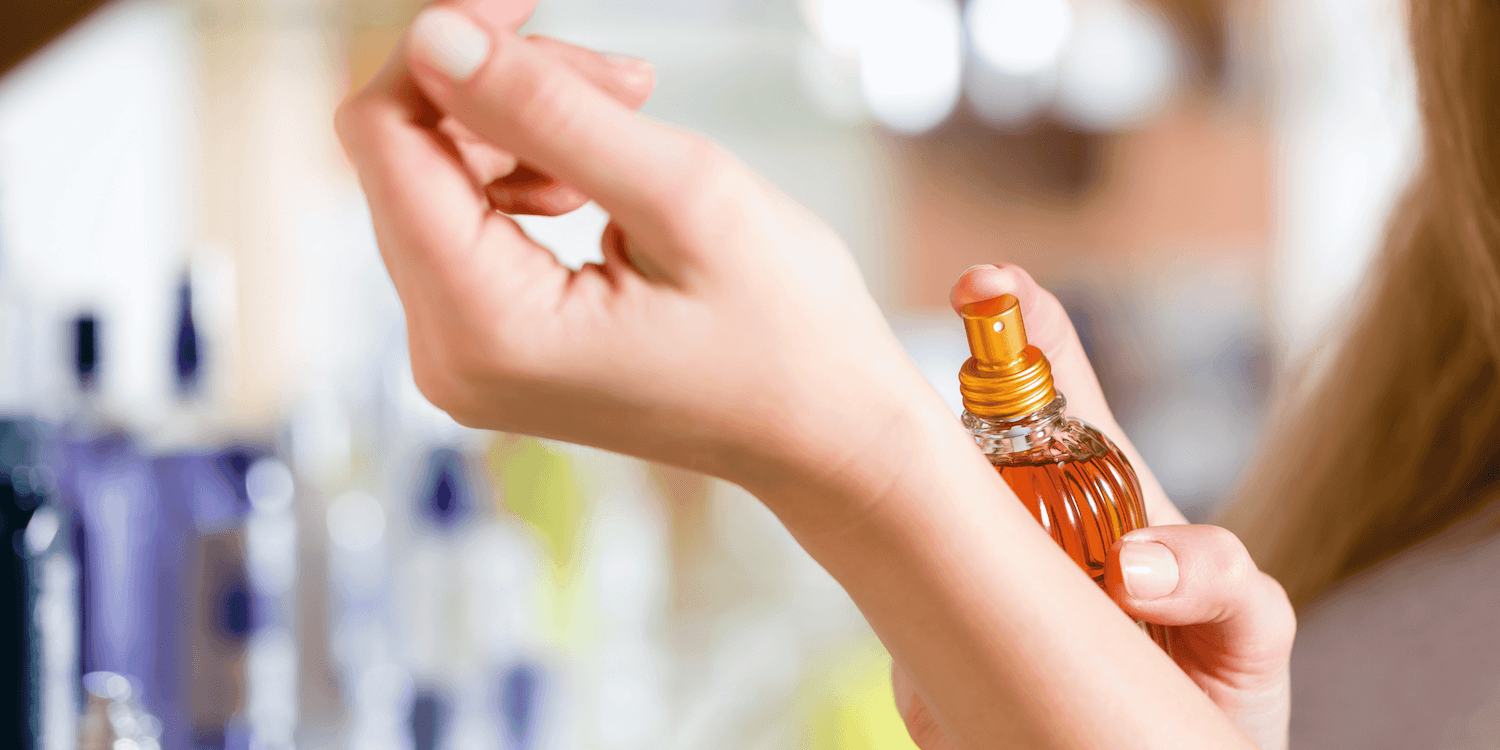
A single spritz of perfume can contain a mix of between 50 to 300 chemicals.
In addition, the Environmental Working Group (EWG) did a study on 3,163 fragrance ingredients. They found that 1 in 20 were classified with a “high” hazard score, with 1 in 6 earning a “moderate” hazard score. Included diethyl phthalates, octoxynols, nonoxynols & more harmful toxic chemicals – definitely not toxins you want in, on, or around your body!
1 in 20 = “high” hazard score. 1 in 6 = “moderate” hazard score.
1/3+ of all fragrances have been flagged as potentially toxic by scientists around the world.
3/4 of chemicals found in personal care products that were linked to adverse health effects were fragranced ingredients.
EWG, Women’s Voices For The Earth & BCPP
Where Is Fragrance Found?
It’s found in more places than not, unfortunately! Fragrance can be found in:
- Nearly all personal care items: shampoo, perfume, cologne, body wash, soaps, lotions, shaving cream, deodorants, hair color…
- Scented candles
- Air fresheners
- Wax melts
- Plug-ins
- Sunscreen
- Feminine care products
- Sexual health products
- Cleaning products: soap, sprays…
- Clothing
- Packaging
- Laundry products: laundry detergent, dryer sheets
… the list goes on… and on… and on.
So… Why Should You Care?
Most people assume that fragranced products are safe… otherwise, why would they be on the shelves? Unfortunately, this could not be further from the truth. Safe fragrance is not the norm. It’s a public health issue!
On average, women use about 12 personal care products per day, which are composed of about 168 unique chemical ingredients in total.
On average, men use about 6 personal care products per day, which are composed of about 85 unique chemical ingredients in total.
Environmental Working Group
How Do You Know If Fragrance Is In Your Product?
Look for the following on an ingredient label:
- Fragrance
- Parfum
- Perfume
- Eau de toilette
- Aroma
- Odor
- Musk
Other Words For Natural Fragrance
These are “better,” but in moderation only.
- Essential oils:
- Citronellol
- Cinnamal
- Linalool
- Limonene
- Geraniol
- Eugenol
- Lavender oil (Lavandula angustifolia)
- Rose flower extract (Rosa damascena)
- Bergamot oil (Citrus bergamia)
- Ylang-ylang oil (Canaga odorata)
- Lemon (Citrus limon)
- Lime (Citrus aurantifolia or Citrus medica)
- Orange (Citrus sinensis)
- Tangerine (Citrus tangerine)
- Peppermint (Mentha piperita)
- Spearmint (Mentha spicata)
- Eucalyptus
- Cinnamon (Cinnamomum)
Also avoid ingredients listing: phthalates, DEP, DBP, DEHP & more (this is not an exhaustive list).
95% of shampoos, conditioners and styling products list “fragrance” as an ingredient.
BCPP
What Is Natural Fragrance? Are Natural Fragrance Oils Toxic?
Natural fragrances are made from a combination of essential oils, natural floral extracts, plant extracts, and naturally-derived ingredients.
Note: The Food & Drug Administration does not regulate essential oil blends (like with most cosmetics). Essential oil companies do not need an FDA review of their products before putting them on the market. Make sure you’re only buying essential oils from a trusted supplier, like Plant Therapy (which is USDA Certified Organic).
Even essential oils, however, can be toxic when highly concentrated (especially for children and pets). Essential oils still release VOCs (volatile organic compounds). To be extra cautious, it’s always best to use fragrance-free products. If you’re opting for fragranced products, look for 100% pure and organic essential oil-based products – use these in moderation only.
Always read all the ingredients listed on the label. Skip anything that only discloses “natural fragrance” or “naturally-derived fragrance” – it’s not fully transparent. The brand should fully disclose the ingredients used.
Do Synthetic Fragrances Impact Your Health? Are They Toxic?
We’ve been taught that the chemical-laden “fresh laundry scent” means laundry is “clean”… when in reality, it’s just drowned in nasty chemicals. Fragrances are linked to so many nasty health effects… it’s best to avoid them altogether. Everyone can be negatively impacted by fragranced chemicals, especially the immuno-compromised, pregnant & infants.
So how do they impact your health? Fragrances…
- Oftentimes contain phthalates, which are chemicals that can help scents last longer. These same chemicals have been linked to hormone disruption, cancer (including breast cancer), birth defects, respiratory problems, reproductive issues & more. [2]
- Can pass from the skin and into the bloodstream [3]
- Are inhaled, they settle on surfaces and can transfer onto hands leading to ingestion
- May pass in-utero from mother to baby [4]
- Potentially disrupt hormones [5]
- May affect fetal development & ADHD [6]
- Are linked to asthma [7]
- May harm reproductive systems (both male & female) [8]
- Can impact allergies & lead to further skin sensitivities [9]
- Accumulate in the body [10]
- Can cause migraine headaches [11]
… all in all, fragrances can be highly toxic to the body, even in very small doses. These doses also add up over time since it’s found in most personal care and cosmetic products. Plus, it’s nearly impossible to assess how all of the fragrance chemicals in multiple products are interacting with one another.
Fragrance is the new second-hand smoke.
For skin-care junkies: Even if your skin can “handle” fragranced products, the longer you use it, the more damaged your skin barrier becomes over time. Every single time you use fragranced products, your skin becomes aggravated (even if there are no physical signs). You want to avoid these allergic reactions at all costs! Much like sun damage, it takes place a little bit over time and your skin will suffer the effects years down the line.
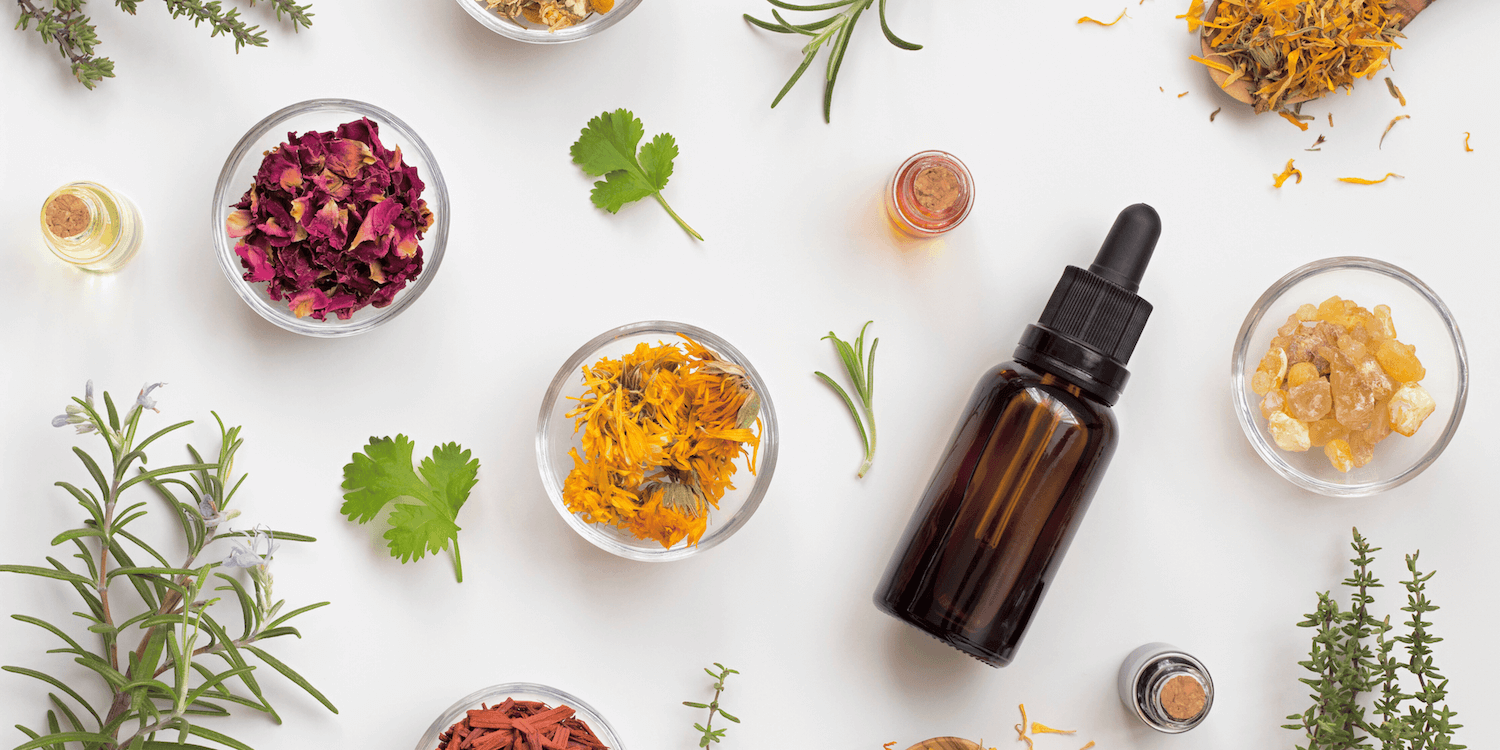
Slow Poisons: What Can You Do To Avoid Toxic Scents?
- DITCH the nasty air fresheners, candles, detergents, body sprays, scented garbage bags, fabric softeners, perfumes and colognes etc… that contain toxic fragrance.
- Avoid personal care products with “fragrance/parfum/perfume” listed on the ingredient label
- Opt for products that list all ingredients. Transparency is key. If a company does not list every single ingredient, ditch em! If you must use a fragranced product, opt for naturally derived 100% pure essential oils in moderation. Never put essential oils directly onto the skin – they must be heavily diluted.
- Note: real essential oils are not usually cheap. They are extra concentrated. You pay for what you get.
Beware: products can list “made with essential oils.” If the fragrance is not 100% essential oil based, they will usually mix synthetic and natural fragrances together.
- Bewards of “unscented” products – sometimes manufacturers use chemicals to mask fragrance from other ingredients. Instead, look for fragrance-free products.
- Use a high-quality air purifier to clean your home’s air. Proper ventilation, even with safe fragrance, is key.
- When in doubt, opt for organic and Made Safe certified. These are usually better options, however it’s still absolutely essential to read the ingredient label.
- Opt for indoor plants, which can naturally clean the air
- Don’t fall victim to marketing terms like “cruelty-free,” “natural,” and “clean fragrance.”
Non-Toxic, Safe Fragrance Options
- Perfume: DIME (code inonaround for 20% off DIME products) & Henry Rose
- Candles & air freshers: Grow Fragrance
- Cleaning products: Branch Basics (code inonaround for 15% off kits)
- Learn more about cleaning products: 11 Natural Cleaning Products
- Laundry products: Soap nuts, Branch Basics, Wool dryer balls
- Feminine products: Cora Organics
- Learn more about non-toxic feminine products: Top Guide To Non-Toxic Period Products
- Air purifier: AirDoctor
- Learn more about air purifiers here: Are Ozone Air Purifiers Safe? Best Air Filter Buying Guide
- Opt for unscented garbage bags
- Make a non-toxic potpourri on the stove by boiling cinnamon & nutmeg
You can find more non-toxic products in the In On Around™ shop.
Make it a habit to look at the ingredient list for every. single. product. you. buy! Many sneaky manufacturers try to sneak fragrance into their products – don’t be fooled & do your due diligence.
Remember: Every time you spend money, you’re casting a vote on the kind of world you want to live in. We are conscious consumers – make the most of your money and support brands who are fully transparent with their ingredients, especially fragranced ingredients. Vote with your dollar!
Check Out The In On Around Shop
Toxic Fragrance – Frequently Asked Questions
Click on the below FAQs to learn more!
What is natural fragrance?

According to the US Food & Drug Administration (FDA), fragrance is a combination of chemicals that gives a product, like a perfume, its scent. Natural fragrance is derived from “natural” sources. Conventional fragrance is usually a combination of chemical components, solvents, UV-absorbers, dyes, stabilizers, dyes & more… most of which are derived from petroleum.
Is fragrance regulated?

Under the 1973 Federal Fair Packaging and Labeling Act, manufacturers are not required to disclose what chemicals they use under the term “fragrance” or “perfume.” They’re deemed “trade secrets” by the US Food & Drug Administration. Fragranced ingredients do not require FDA approval before they are sold on the market.
Where is synthetic fragrance found?
Is synthetic fragrance dangerous to your health?

Yes, long-term exposure to synthetic chemicals can damage your health. Oftentimes fragrances can contain phthalates, which are chemicals that can help scents last longer. These same chemicals have been potentially linked to hormone disruption, cancer, birth defects, respiratory problems, reproductive issues & more.
Have you made the switch? Do you still use scented products?
Are you really going to jeopardize your long-term health over a “nice smelling” skincare product? I sure hope not! Don’t let smelling “good” come at the cost of your health.
Cutting out fragrance is single-handedly one of the best changes you can make in your lifestyle.
Let me know your thoughts! You can watch our web story here.
xoxo,

Want to read more? Check out my other articles here!
“What is natural fragrance” information from: FDA, Made Safe, Safe Cosmetics, IFRA, EWG Skin Deep Database, Paula’s Choice, Force of Nature, Dr. Axe, Huff Post, The Guardian, Environmental Protection Agency
Copyright In On Around LLC 2021 ©. The statements made on this website have not been evaluated by the FDA (U.S. Food & Drug Administration). They are not intended to diagnose, treat, cure, or prevent any disease. The information provided by this website should not be used as individual medical advice and you should always consult your doctor for individual recommendations and treatment.

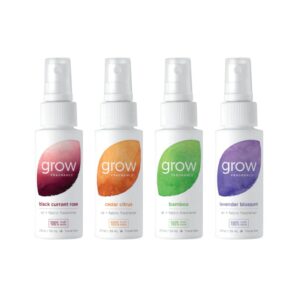
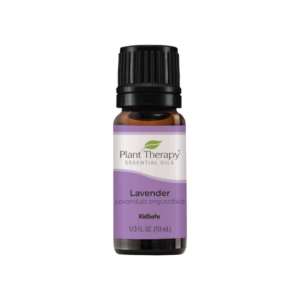
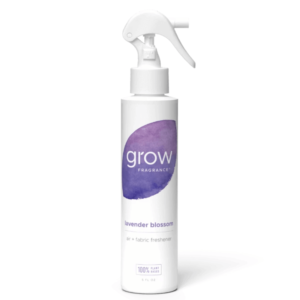
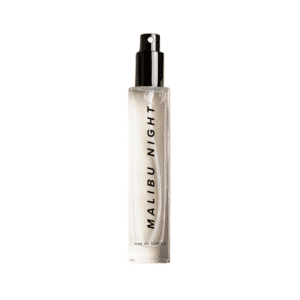
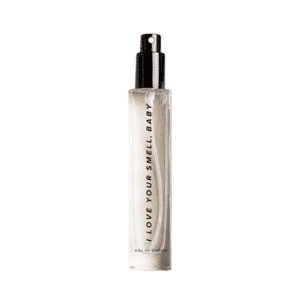
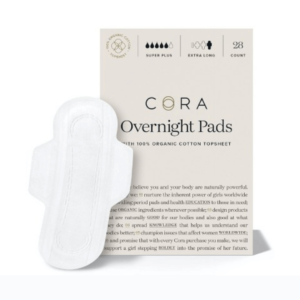
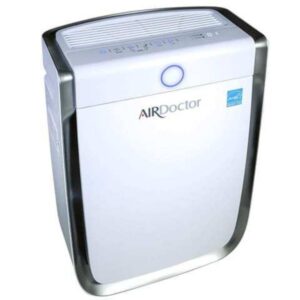
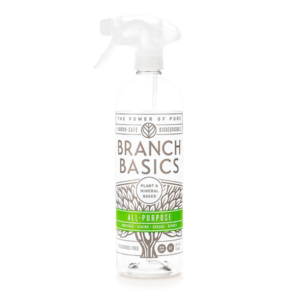


2 Responses
Obviously your content on this page is spot on for many reasons. It steers away from the usual pitfalls and errors most fall into- using bad alternatives. Greatly appreciated!